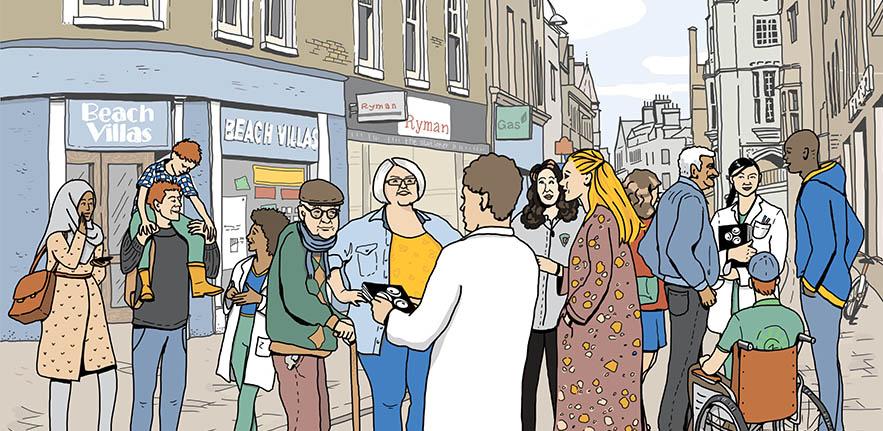
We aim to connect to local under-served communities and empower them to access stem cell research.
Why?
- Everybody should be able to use and influence scientific research, regardless of their background or interests.
- Stem cell related diseases and future therapies do not discriminate.
- Certain communities are often overlooked or excluded when delivering our engagement through the traditional channels e.g. science festivals.
- We limit the impact our engagement can make by not engaging in surrounding towns, cities and rural areas.
How?
- By creating and marketing a funding scheme to local organisations to work with us on an engagement project that meets their communities’ needs and interests.
- By experimenting with novel activities, unusual locations and targeted invitations to reach new people in the Cambridgeshire region.
- By monitoring our success in reaching new local audiences from under-served communities using demographic data and measures of ‘science capital’.
Goals
- Access to our research and laboratories by new communities
- New mechanisms and skills evolved by researchers to engage diverse audiences
- Helping make all communities feel valued and better informed
Highlights
Projects include charity concerts in Newmarket, our stem cell brew, Regenerator, and The Story Collider.

